Mouth and teeth
Prosthesis always clean
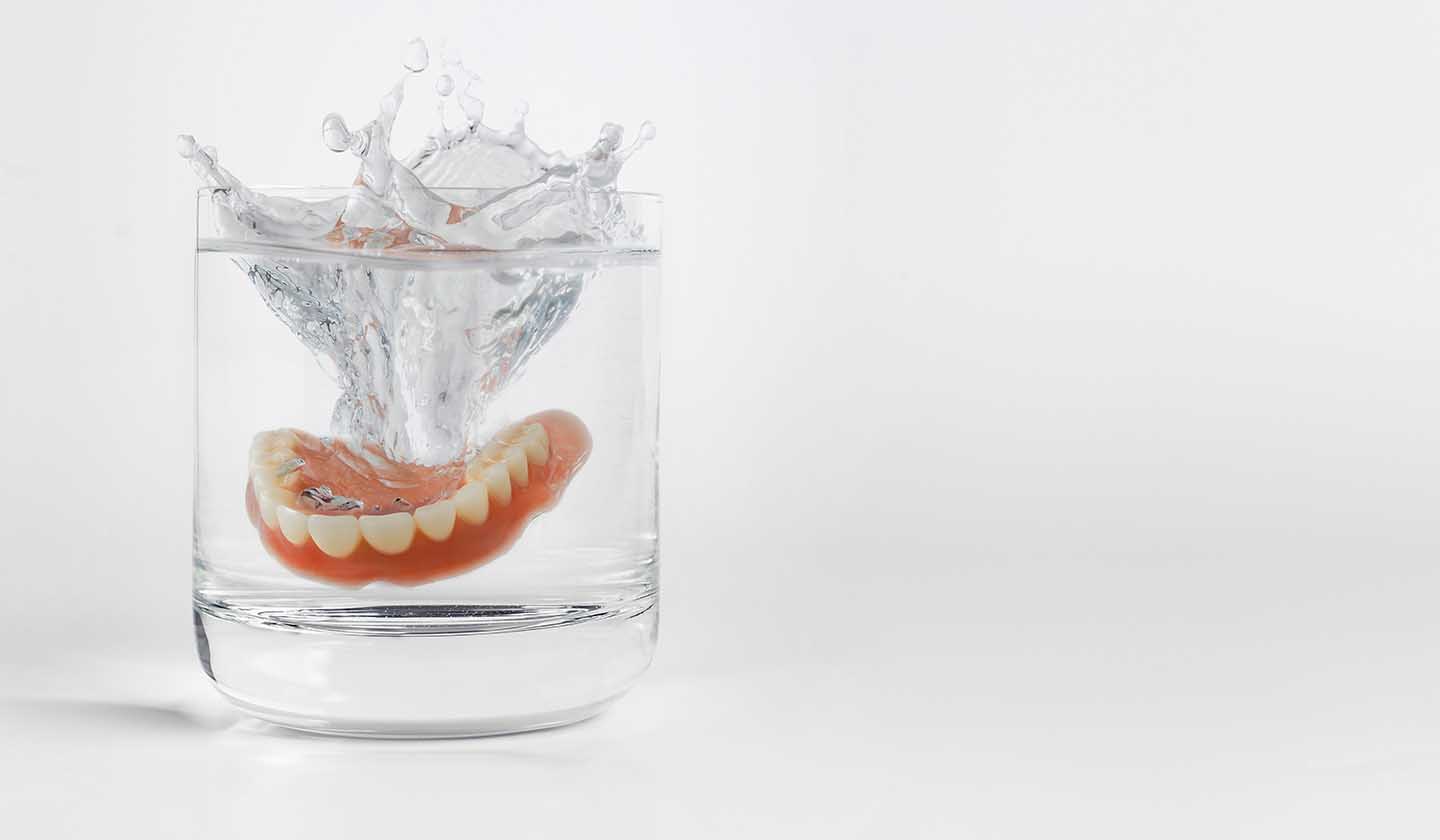
Dental prostheses are important both in terms of functionality and aesthetics, as they contribute to good chewing, phonetics, and appearance.
Like natural teeth, dental prostheses tend to form bacterial plaque, tartar, and stains. Its use requires special care with the need for daily hygiene in order to promote oral health.
Dental Prostheses
Dental prostheses are classified as fixed dentures or removable dentures. The choice of the type of prosthesis is made by the dentist and depends on the needs of each individual.
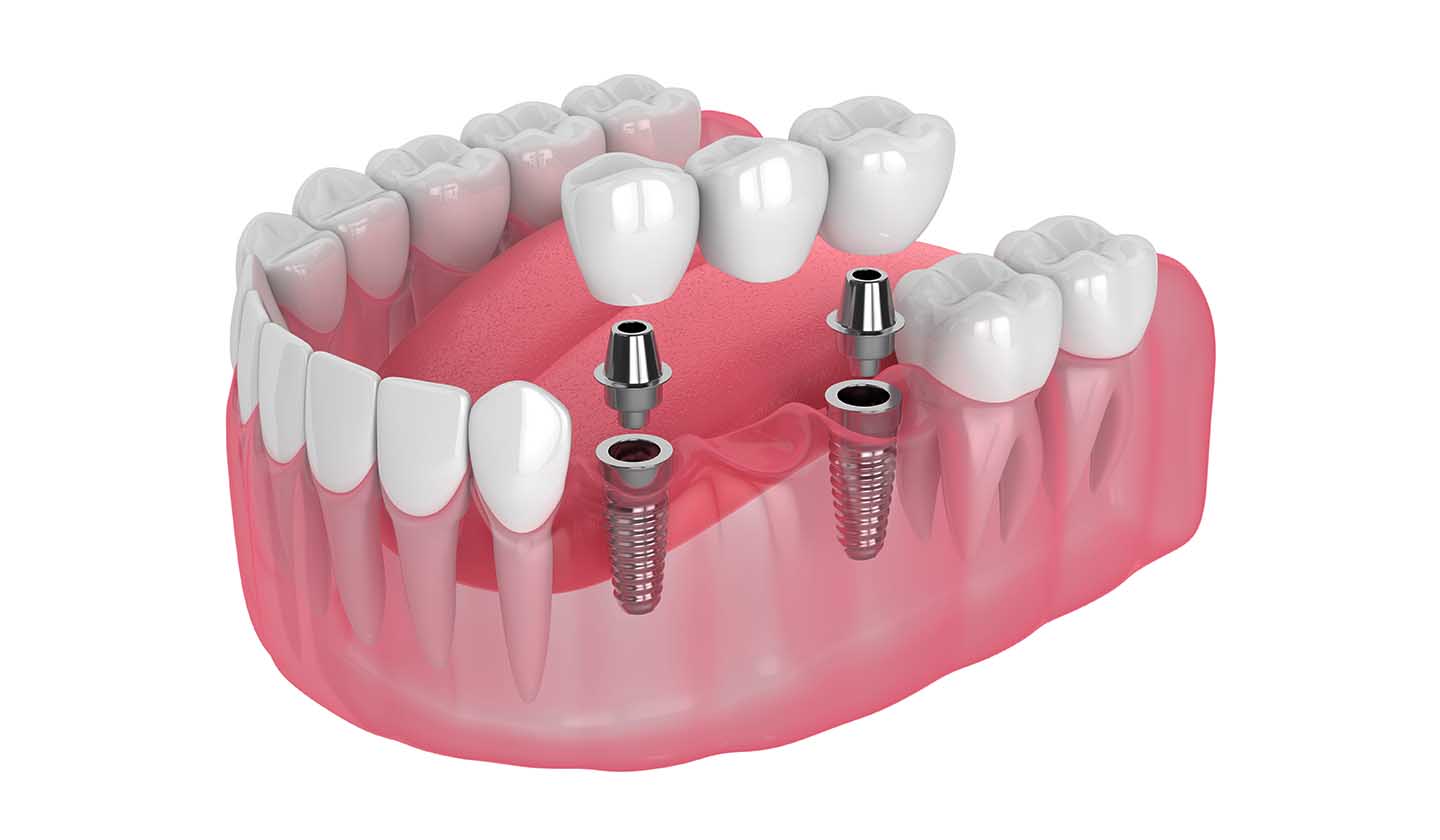
Fixed Dentures
They consist of the partial or total restoration, or the replacement of one or more teeth, through a prosthesis that is placed on the previously prepared natural tooth and / or on dental implants.
These dental prostheses cannot be removed by the patient and include dental crowns or bridges.
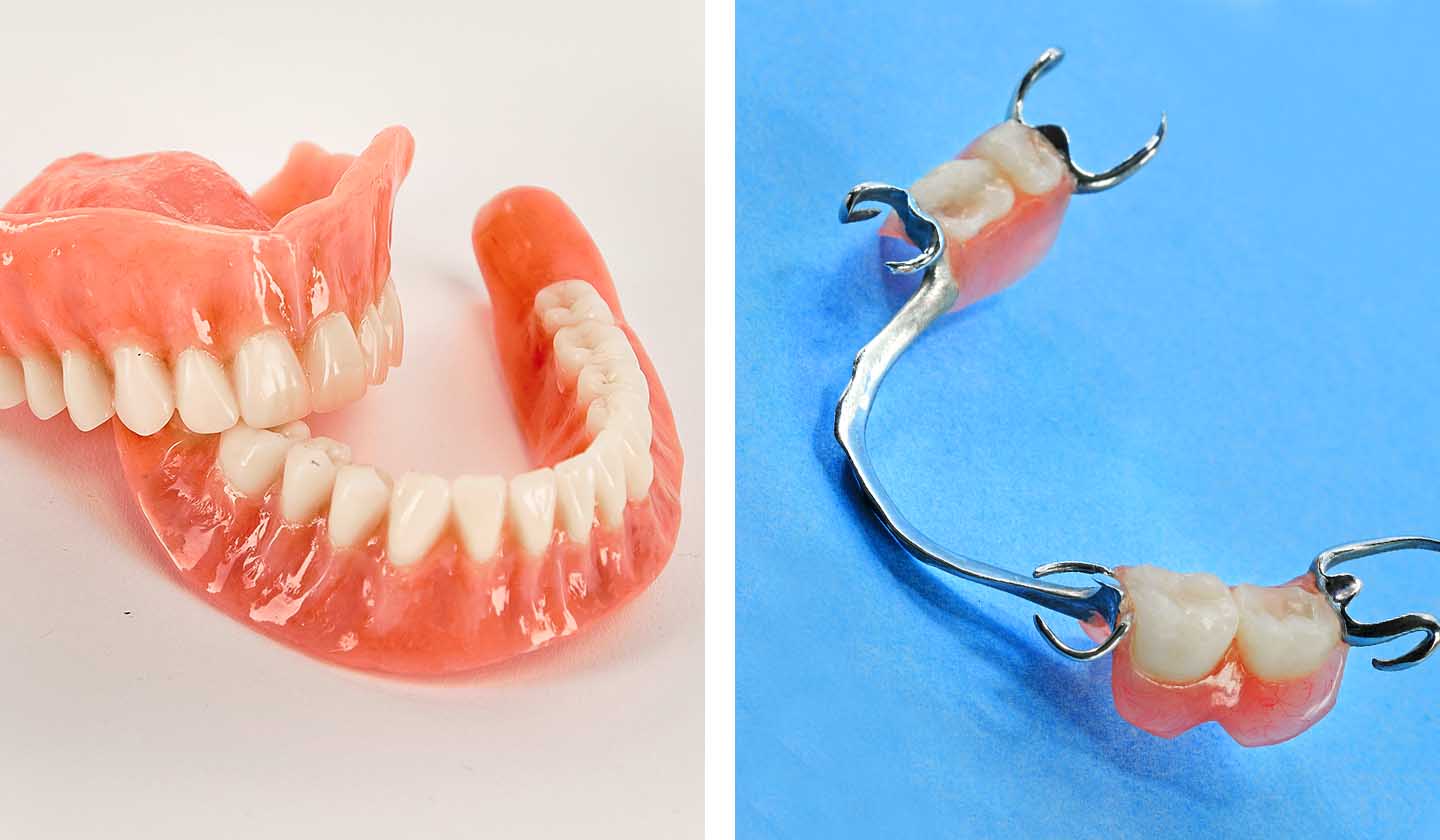
Removable Prostheses
The removable complete denture, often referred to as denture or false teeth, is intended to replace all teeth.
The partial removable denture is intended to replace one or more teeth, but not all teeth. It rests on the mucosa and gums and may have hooks to help fix it.
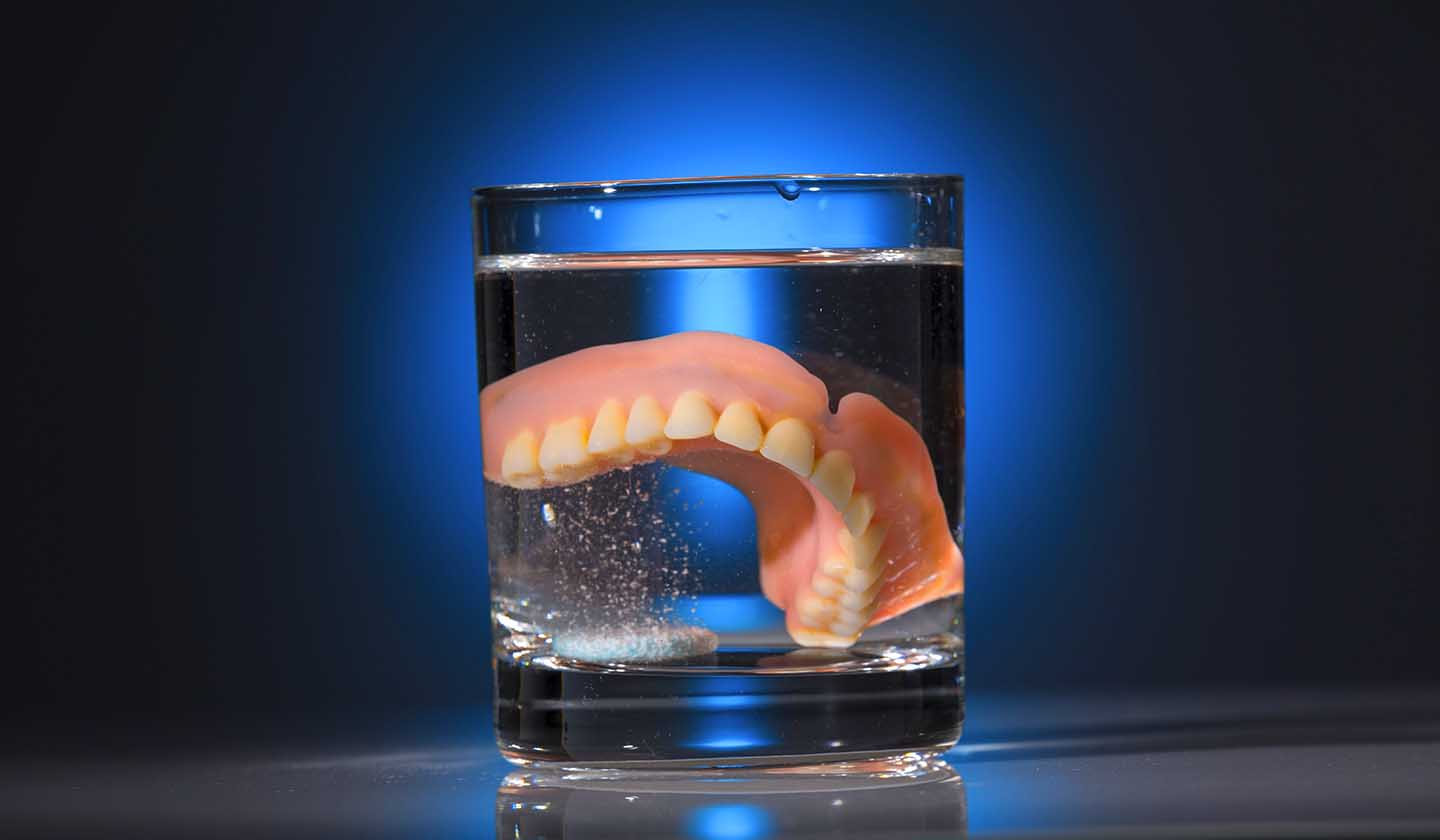
Hygiene of dental prostheses
Regardless of the type of prosthesis, oral hygiene is important to ensure oral health.
Prostheses must be cleaned, cared for and checked with the same concern and regularity with which we care for natural teeth. However, hygiene procedures will depend on the type of prosthesis.
In the case of fixed dentures, hygiene is a simple procedure similar to that applicable to natural dentition. Therefore, an appropriate toothbrush and dental floss should be used, as well as dental prosthesis brush.
Regarding removable prostheses, they must be removed after each meal and washed with products indicated for the purpose, in order to eliminate most food remains. Then rinse thoroughly with water.
Before placing back, the prosthesis, you should brush your natural teeth.
At the end of the day, the hygiene of the removable dental prosthesis should be more thorough. There are specific cleaning products that help:
- Cleaning tablets - to be diluted in water, the prosthesis is kept immersed in water for some time. It helps to remove stains and reduce bacterial plaque. Then, the prosthesis should be brushed;
- Foams - the foam is suitable for brushing the prosthesis because it eliminates microorganisms and does not damage the prosthesis;
- Cleaning wipes - useful for hygiene outside home because they are easy to transport and the denture does not need to be rinsed afterwards.
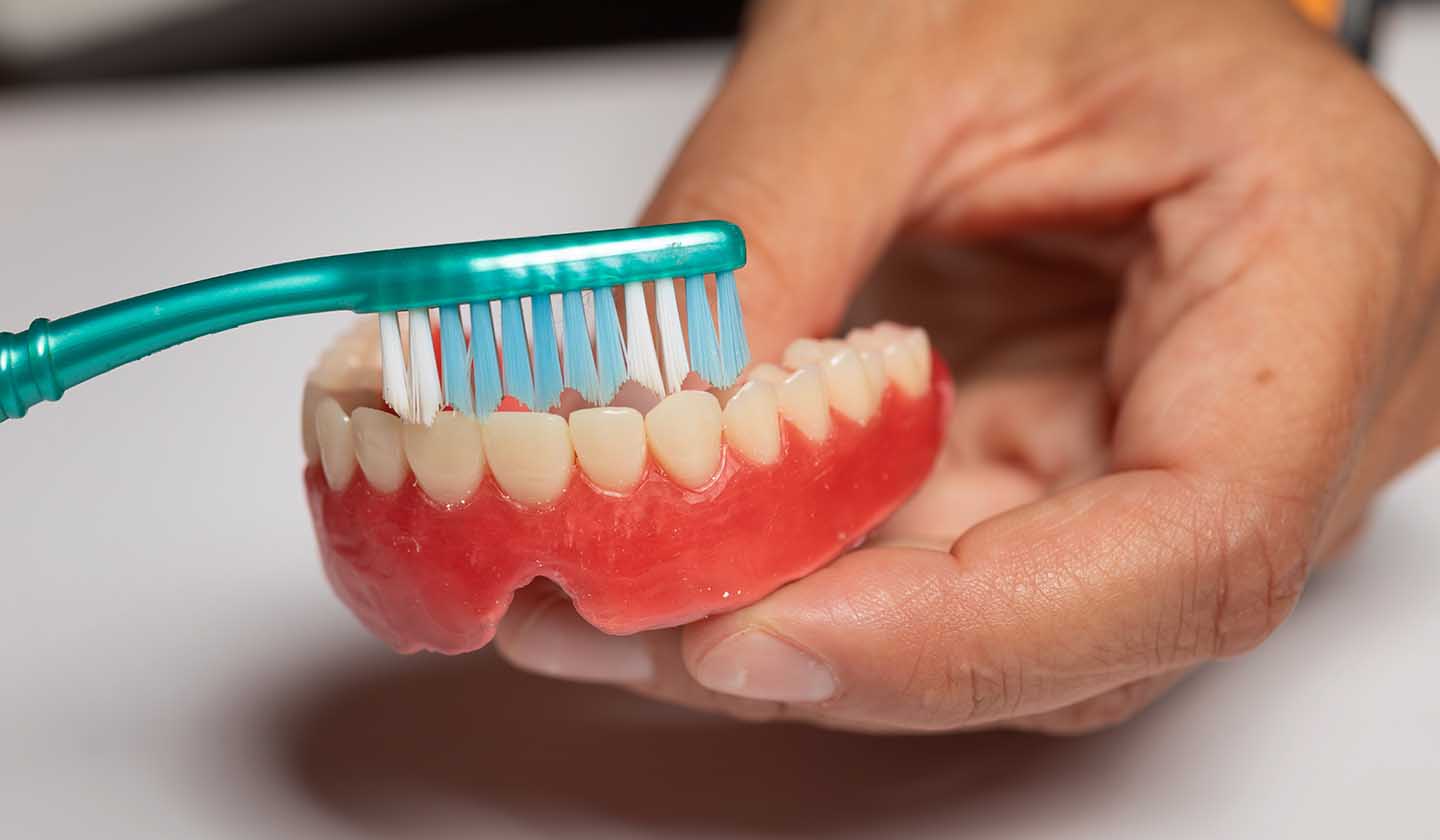
Steps for the hygiene of the removable dental prosthesis
- 1st step - Brush your dental prosthesis every day - use a prosthesis brush and a specific cleaning solution for dental prostheses;
- 2nd step - Daily immersion of the dental prosthesis with cleaning tablets - the manufacturer's instructions for use must be followed;
- 3rd step - Remove the prosthesis from the mouth at night - it helps to relieve swelling of the mucosa and prevent infections;
- 4th step - Maintenance of the dental prosthesis - go to the dentist at least twice a year to adjust the dental prosthesis to changes in the mouth and detect any problems sooner.
Some care suggestions for dental prostheses:
- Do not use tooth paste to clean dentures (they are abrasive and promote the wear and appearance of irregularities in the dental prosthesis making it rough, which favours the accumulation of food debris);
- When handling the dental prosthesis, place a towel or a container of water underneath. It is a sensitive material so it can break easily;
- Do not clean the dental prosthesis with cutlery, such as knives or forks (they can create scratches on the prosthesis by creating uneven surfaces, which increases the probability of accumulation of food debris);
- If the dental prosthesis has metallic components, it must be disinfected with active oxygen cleaning tablets;
- If the dental prosthesis starts to turn yellow or pigmented due to coffee, tobacco smoke or accumulation of residues, opt for whitening cleaning tablets;
- You can keep the prosthesis in water with appropriate disinfectants, such as denture hygiene boxes or removable denture hygiene products.
Sources
iSaúde
Farmácia Distribuição Magazine
Também lhe poderá interessar
Mouth and teeth
Gingivitis - Your oral test
Digestive system






